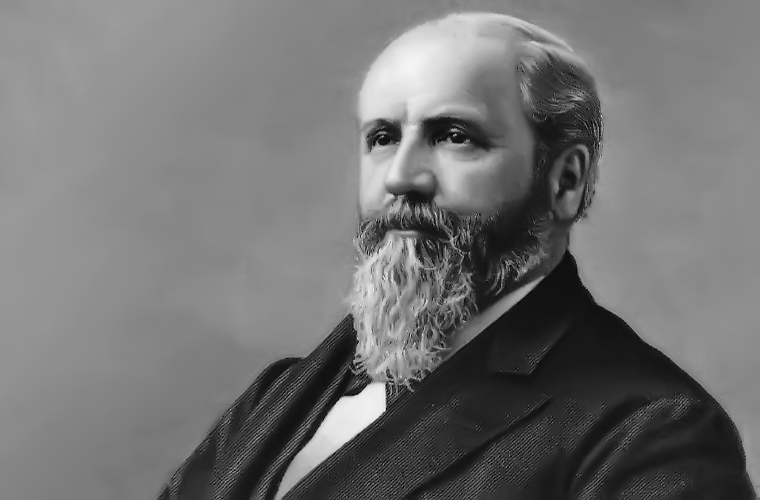Clinton Bowen Fisk entered the world on September 30, 1828, near the Erie Canal in Western New York, born to Benjamin Bigford Fisk and Lydia Aldrich Fisk. His family relocated to the Michigan Territory during his infancy, but tragedy struck early when his father’s death plunged them into poverty. Despite these hardships, young Fisk showed resilience, establishing himself as a small banker in Coldwater, Michigan. In 1850, he married Jeannette Crippen, building a life together until the economic Panic of 1857 shattered his banking ventures, forcing him to start anew.
Undeterred, Fisk reinvented himself in St. Louis, Missouri, just as the American Civil War loomed. His resourcefulness shone through when he joined the home guards, playing a key role in seizing Camp Jackson in May 1861. By the summer of 1862, he had recruited and organized the 33rd Missouri Volunteers, earning a promotion to brigadier general that November. His military service culminated in 1865 when he mustered out as a major general, having proven his leadership under pressure.
Post-war, Fisk’s commitment to social good took center stage. Appointed assistant commissioner of the Bureau of Refugees, Freedmen, and Abandoned Lands for Kentucky and Tennessee, he dedicated himself to aiding emancipated slaves. In 1866, he founded a school for freedmen in an abandoned army barracks in Nashville, Tennessee, which was chartered as Fisk University a year later in his honor. This institution became a lasting testament to his vision for education and equality.
Fisk’s career continued to evolve as he returned to banking in New York, where he worked until 1874. That year, he assumed a new role with the Board of Indian Commissioners, advocating for the welfare of Native Americans. His leadership qualities led to his appointment as president of the board in 1881, a position he held until his death. In 1882, Fisk’s commitment to education extended further when he became a trustee of Dickinson College, contributing to its governance and development.
A staunch advocate for social reform, Fisk embraced the Prohibition movement, aligning with its call for temperance. In 1888, he ran for president of the United States on the Prohibition Party ticket, securing an impressive 250,000 votes, a reflection of his influence and the growing support for the cause. His campaign underscored his dedication to moral and societal improvement, even if it fell short of the presidency.
Clinton Fisk’s multifaceted life—as a soldier, educator, businessman, and reform advocate—came to an end on July 9, 1890. His legacy endures through Fisk University and his contributions to education, civil rights, and social reform, marking him as a figure of enduring impact in American history.

